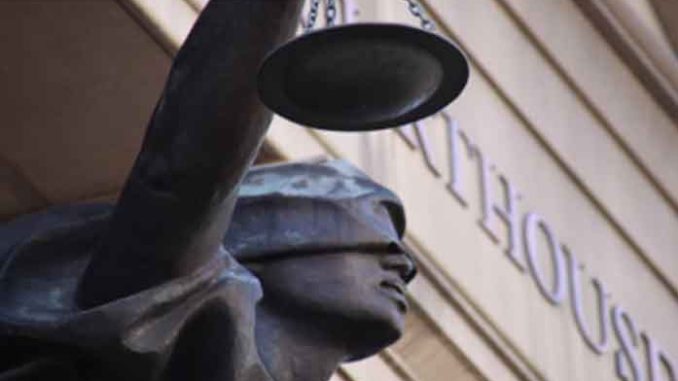
The Arizona Court of Appeals has been asked to find that a local resident had standing to challenge a vote by the Cochise County Board of Supervisors which appointed one of their own as justice of the peace for the Sierra Vista area without providing prior notice that the supervisor was interested in the position.
Days after the Feb. 12, 2019 appointment, area resident David Welch filed a legal challenge which contended Pat Call and fellow supervisors Ann English and Peggy Judd violated Arizona’s open meeting and conflict of interest laws by appointing Call to an upcoming vacancy at the Sierra Vista Justice Court, also known as Justice Precinct 5 or JP5.
Welch requested a court order voiding Call’s appointment and for the supervisors to be removed from office. His challenge was dismissed last spring when Judge Monica Stauffer of the Greenlee County Superior Court ruled he had no standing to challenge the appointment even though Welch lived in the precinct and had a criminal case pending in that court.
A notice of appeal was filed in May 2019, but it took until the end of January for all parties to file the necessary pleadings with the court of appeals. In the opening appellate brief, Welch’s attorney David Abney says Stauffer erred by denying Welch standing to challenge the appointment, which Abney calls a matter of “great public importance involving political patronage, illegal acts, and cronyism.”
Abney, an experienced litigator from Phoenix, also argues Stauffer abused her judicial discretion by refusing to review the minutes of a non-public executive session which Welch believes may contain evidence showing one or more of the supervisors engaged in unlawful conduct.
The court of appeals has been asked to conduct oral arguments given the statewide importance of the underlying issues. However, no matter how the appeals court rules, the losing party is expected to file a petition for review to the Arizona Supreme Court.
That means a final decision on the challenge may not be entered in the case until long after Call’s term expires at the end of 2020. And if the appointment is ultimately overturned, there appears to be no precedent for what happens to the thousands of rulings and judicial actions Call has made as justice of the peace.
The controversy began in Feb. 12 when the county supervisors met to address an upcoming vacancy for JP5’s justice of the peace. Public records show the board already knew the outgoing judge arranged to have judicial coverage at the Sierra Vista Justice Court for an extended period of time to allow the board to accept and review applications for the position.
However, an audio recording of the board’s public discussion shows Call raised concerns with accepting applications or utilizing a committee to suggest a replacement. The supervisors, including Call, then began a non-public executive session with the clerk of the board, the county administrator, and a top member of the county attorney’s office.
Once the public meeting reconvened, English and Judd immediately appointed their fellow supervisor as justice of the peace, with Call abstaining from the vote. Then minutes later English admitted she came into the meeting knowing Call, who had no legal training, was interested in the position that doubled his taxpayer salary.
Within days, local attorneys Chris Russell, Jana Flagler, and Robert Stachel initiated legal action on Welch’s behalf, in part for the lack of public notice about Call’s interest. Arizona Revised Statute 38-503(B) states a public officer who has a “substantial interest in any decision of a public agency shall make known such interest in the official records…and shall refrain from participating in any manner… in such decision.”
Welch’s challenge was dismissed by Stauffer, who suggested Welch should have taken his concerns to Arizona Attorney General Mark Brnovich or County Attorney Brian McIntyre, whose staff provided the supervisors with legal advice on the justice of the peace vacancy. One of McIntyre’s attorneys was also present during the executive session.
In the county’s answer to the appeal, Jim Jellison argues Stauffer correctly ruled Welch lacked standing to oppose Call’s appointment and that Welch failed to state valid claims for which the court could remedy. He also points out that state law does not require a county board to engage in a competitive process to fill a vacancy nor did they have to select someone with legal experience.
Jellison, an attorney privately retained by the county board after Welch initiated legal proceedings, noted the board of supervisors “had the absolute statutory right to fill the vacancy as it did, and (Welch’s) remedy, if any, is through legislative change – not judicial action.”
According to the court of appeals’ calendar, oral arguments, if granted, won’t be held until this spring.
